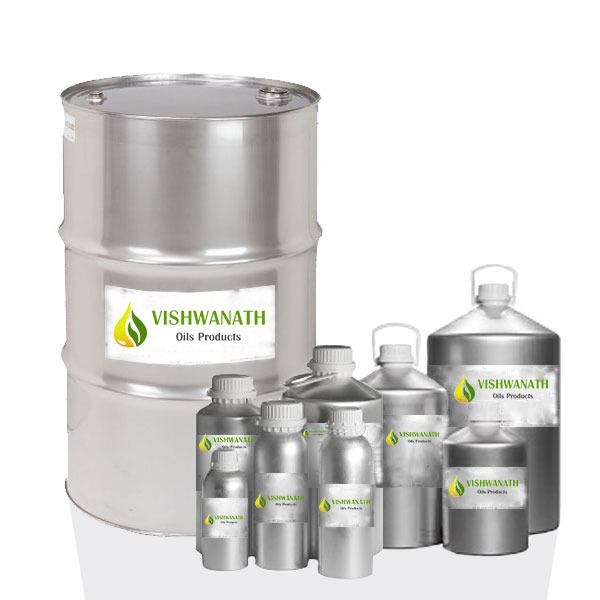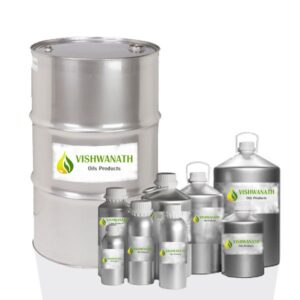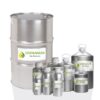DESCRIPTION
History & Discription Of Cinnamon Bark oil (spice oil):
Cinnamon is an aromatic spice that comes from the bark of a Southeast Asian tree. The bark is peeled and dried and is often ground into powder, but is also used in rolled strips. It is used in both sweet and savory foods. The spice comes from the Cinnamon tree which are small evergreens that contain aromatic bark and leaves. These trees can grow to a height of 66 feet, although most are regularly trimmed and kept as groups of bushes in order to make cultivation of the cinnamon bark easier. The cinnamon tree produces yellowish-green flowers and a small berry fruit. Cinnamon is considered to be one of the first traded spices in the ancient world. There are many biblical references to this spice and it is mentioned in the bible by its Hebrew word, kannamon, in Psalms, Proverbs, Ezekiel and Revelations.
Cinnamon was Considered so valuable during this time it was equal in worth to gold and ivory. It was regarded as a suitable gift for monarchs and for gods. Ancient Egyptians used cinnamon as part of their embalming rituals. Physicians from the middle ages used cinnamon to help treat cold and throat ailments such as coughing and sore throats.
Distillation of Cinnamon Bark oil (Spice oil):
Dried Cinnamon bark is placed in Distiller and the steam is allowed to pass through the cinnamon bark under pressure which softens the cells and allows the bark oil to escape in vapour form. The Vapour produced and passed into a condenser and then it is colled. The mixture of water and cinnamon bark oil is left from the condenser and separated into two layers in a separator. Proper Temperature must be maintained through the distillation process and pressure length of time equipment and batch size are strictly monitored. After Distillation Each Batch of oils is tested in VISHWNATH OILS PRODUCTS Labs By Senior Analyst and the constituents are E-cinnamaldehyde, eugenol, limonene, linalool, alpha-pinene, beta-pinene, beta-caryophyllene.
Vishwanath oils Products manufacturer of Pure Cinnamon Bark oil (Cinnamomum zeylanicum).
Blends with Cinnamon Bark Oil (Spice oil);
Cinnamon Bark oil well blends with Black pepper, clove, ginger, Geranium, cardamom, bergamot, Frankincense, grapefruit, lavender, lemon, orange, Tea Tree, Ylang-ylang oil.
Constituents of Cinnamon Leaf oil (Spice oil):
Each Batch of oils is tested in VISHWNATH OILS PRODUCTS Labs By Senior Analyst and the constituents are E-cinnamaldehyde, eugenol, limonene, linalool, alpha-pinene, beta-pinene, beta-caryophyllene.
Uses of Cinnamon Bark oil (Spice oIl);
Food flavoring and cosmetics: Cinnamon oil is available as an essential oil and as a food-grade oil. It can also be found as an ingredient in sugar-free gum, hard candy, tea and in commercially prepare baked goods. Cinnamon oil used as an ingredient in toiletries, such as toothpaste, mouthwash, soap and body lotion. It is also used to scent room sprays, candles, and seasonal items like pine cones and garlands.
Hair Fullness and Growth: Anecdotal reports and traditional practices indicate that a mask made of cinnamon, olive oil, and honey may be effective at promoting the growth and thickening of hair.
Mood enhancer: Cinnamon oil properties make it a popular choice for at home aromatherapy treatment. Essential oils are diffused or spritzed into the air so they can be breathed in absorbed into the skin. Aromatherapy has been linked to many benefits, including reduced depression and anxiety, and better sleep.
Antibacterial properties : Cinnamon antibacterial and antifungal properties have been found to be effective against streptococcus and on Candida ssp biofilm, two agents which cause oral infections and cavities in teeth.
Improves Blod sugar level: Cinnamon has been shown to have positive effects on insulin release which means it can help keep blood sugar stable and therefore prevent chronic fatigue, moodiness, sugar cravings and overeating.
Precautions to use over Cinnamon Bark oil (Spice oil):
Pregnancy and breast feeding consuming cinnamon bark is likely safe when taken in food amount during pregnancy and breast-feeding. Do not take larger amounts of cinnamon bark if you are pregnant or breast-feeding.
| Botonical Name | : | Cinnamomum zeylancium |
| CAS # | : | 8015-91-6 |
| Country of Origin | : | India |
| Color & Odor | : | dark yellow clear oily liquid with Sweet, cinnamic, spicy warm, woody and aromatic |
| Solubility | : | soluble in alcohol, insoluble in water |
| Specific Gravity | : | 1.020-1.030 @ 20 C |
| Optical Rotation | : | -1°0′ to – 2° 10’@ 20 C |
| Refractive Index | : | 1.568-1.535 @ 20 C |
| Flash Point | : | 160.00 °F |
| Extraction Method | : | -steam Distillation |




Reviews
There are no reviews yet.